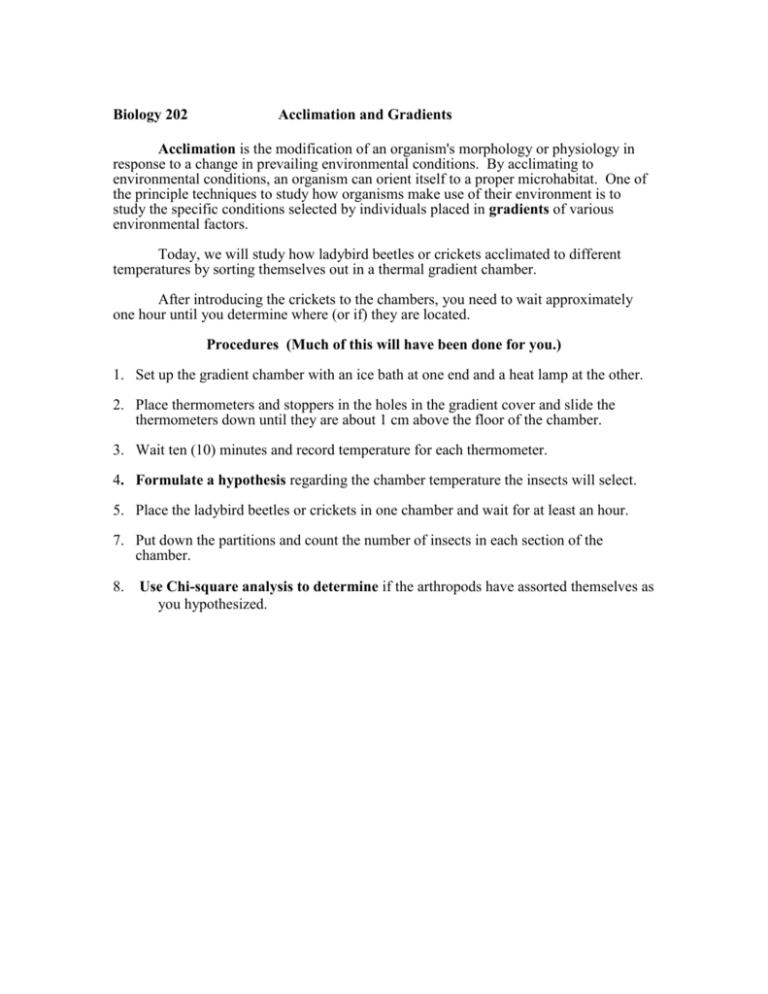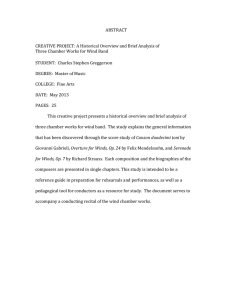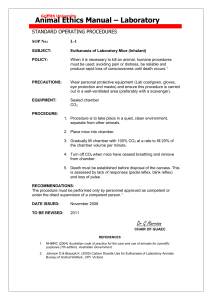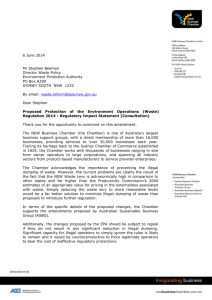Biology 202 Acclimation and Gradients
advertisement

Biology 202 Acclimation and Gradients Acclimation is the modification of an organism's morphology or physiology in response to a change in prevailing environmental conditions. By acclimating to environmental conditions, an organism can orient itself to a proper microhabitat. One of the principle techniques to study how organisms make use of their environment is to study the specific conditions selected by individuals placed in gradients of various environmental factors. Today, we will study how ladybird beetles or crickets acclimated to different temperatures by sorting themselves out in a thermal gradient chamber. After introducing the crickets to the chambers, you need to wait approximately one hour until you determine where (or if) they are located. Procedures (Much of this will have been done for you.) 1. Set up the gradient chamber with an ice bath at one end and a heat lamp at the other. 2. Place thermometers and stoppers in the holes in the gradient cover and slide the thermometers down until they are about 1 cm above the floor of the chamber. 3. Wait ten (10) minutes and record temperature for each thermometer. 4. Formulate a hypothesis regarding the chamber temperature the insects will select. 5. Place the ladybird beetles or crickets in one chamber and wait for at least an hour. 7. Put down the partitions and count the number of insects in each section of the chamber. 8. Use Chi-square analysis to determine if the arthropods have assorted themselves as you hypothesized.











